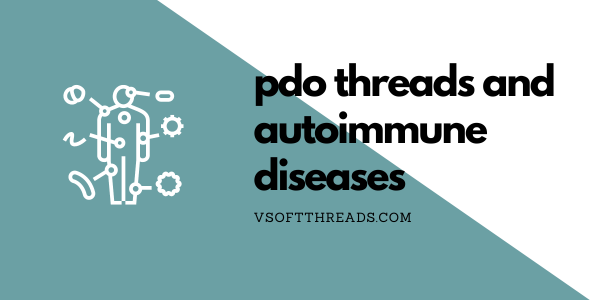
Many people have turned to cosmetic medicine in recent years to treat areas of their skin that they’re unhappy with. Whether it’s something that they’ve always wanted to fix, or something that has appeared as they’ve aged, there are many reasons why a person might want to “correct” something in their skin.
Today, there are many alternatives to invasive surgical procedures. One of the leading options is called PDO threads.
PDO threads provide a number of significant advantages over not just surgical procedures but also other non-invasive options. The procedures are done quickly, have limited downtime and recovery, and produce amazing results.
As a synthetic polymer, PDO threads are also completely biodegradable and biocompatible, which means that your body will naturally break them down over time, without much concern about negative effects.
At the same time, there are some people who may not want to undergo a PDO threads procedure for one reason or another. One of those situations is if a person has an autoimmune disease.
Below, we will discuss PDO threads and autoimmune diseases in more detail.
While PDO threads are minimally-invasive and have limited complications, there are some people who are advised not to get the procedure done. This includes people who have diabetes, are pregnant or are breastfeeding, or suffer from an autoimmune disease. The reason for this is that the autoimmune disease can interfere with the natural process that the body uses for breaking down the PDO threads.
Table of Contents
Add a header to begin generating the table of contents
 Medically reviewed by: Elizabeth Williams RN
Medically reviewed by: Elizabeth Williams RN
Updated: 9/24/2024
What Are PDO Threads?
PDO threads are thin surgical sutures that are completely dissolvable. They are inserted into your skin using a pre-loaded cannula.
Those with barbs on them are used to grab onto parts of the skin and lift it up to mimic the results of a surgical facelift. This can lift sagging skin, give definition to areas such as around the lips or under the eyes, and also rejuvenate your skin and give you a youthful look.
Your body will naturally break down the PDO threads over time, which means they don’t have to be removed. This is done through a natural process in which the body will produce extra collagen in the treated area.
This extra collagen not only helps to break down the PDO threads but also provides your skin with more elasticity, volume and shine.
The threads themselves are completely biocompatible, with most patients not having any negative effects at all from the procedure.
What Are the Common Side Effects of PDO Threads?
Following your PDO threads procedure, you will be able to immediately resume most of your day-to-day activities. This includes walking, sitting upright, going back to work and more.
There are some things that you will be advised to avoid following a procedure. For instance, you should avoid heavy and intense workouts for at least two weeks following a PDO threads procedure. You should also avoid massages in the face for a few weeks as well.
Learn more about what to avoid after a PDO Thread Lift
There are some medications that you should avoid taking, such as Retinol, anti-inflammatories and Ibuprofen, as they could have an adverse effect on the healing process and on the results of the procedure itself. You also want to be careful with the skincare products that you use after a procedure as well as how hard you push on or rub your face.
Most people who have a PDO threads procedure will not experience any significant side effects. In fact, the typical after-effects of a procedure are just minor swelling and/or bruising.
This can be treated by applying ice to your face and taking certain over-the-counter medications as instructed by your practitioner. The swelling and/or bruising will typically subside in about a week on its own.
Can I Get PDO Threads with an Autoimmune Disease?
While PDO threads are minimally-invasive and have limited complications, there are some people who are advised not to get the procedure done.
This includes people who have diabetes, are pregnant or are breastfeeding, or suffer from an autoimmune disease. The reason for this is that the autoimmune disease can interfere with the natural process that the body uses for breaking down the PDO threads.
People who have an autoimmune disease are typically more sensitive to foreign objects, even those such as PDO threads that are biocompatible and biodegradable. Their bodies may not be able to properly break down the threads as normal, which not only could affect the outcome of the procedure but also might result in complications during the breakdown and healing process.
If you have an autoimmune disease, it’s important to consult with your medical provider to find out whether it would be OK for you to get a PDO threads procedure.
Choose a Practitioner Who Uses V Soft Lift PDO Threads
While PDO threads are minimally invasive and don’t result in complications for most people, those who have an autoimmune disease are typically advised not to get the procedure done. That being said, it’s always a good idea to consult with your medical practitioner to see whether it would be OK for you to get a PDO threads procedure or not.
When choosing a provider, it’s also advisable to go with one who uses PDO threads from V Soft Lift.
We have created a wide line of PDO threads that can be used for different procedures and for different skin types. This helps to ensure the best results with the fewest complications possible.
For more information, please contact us today.
